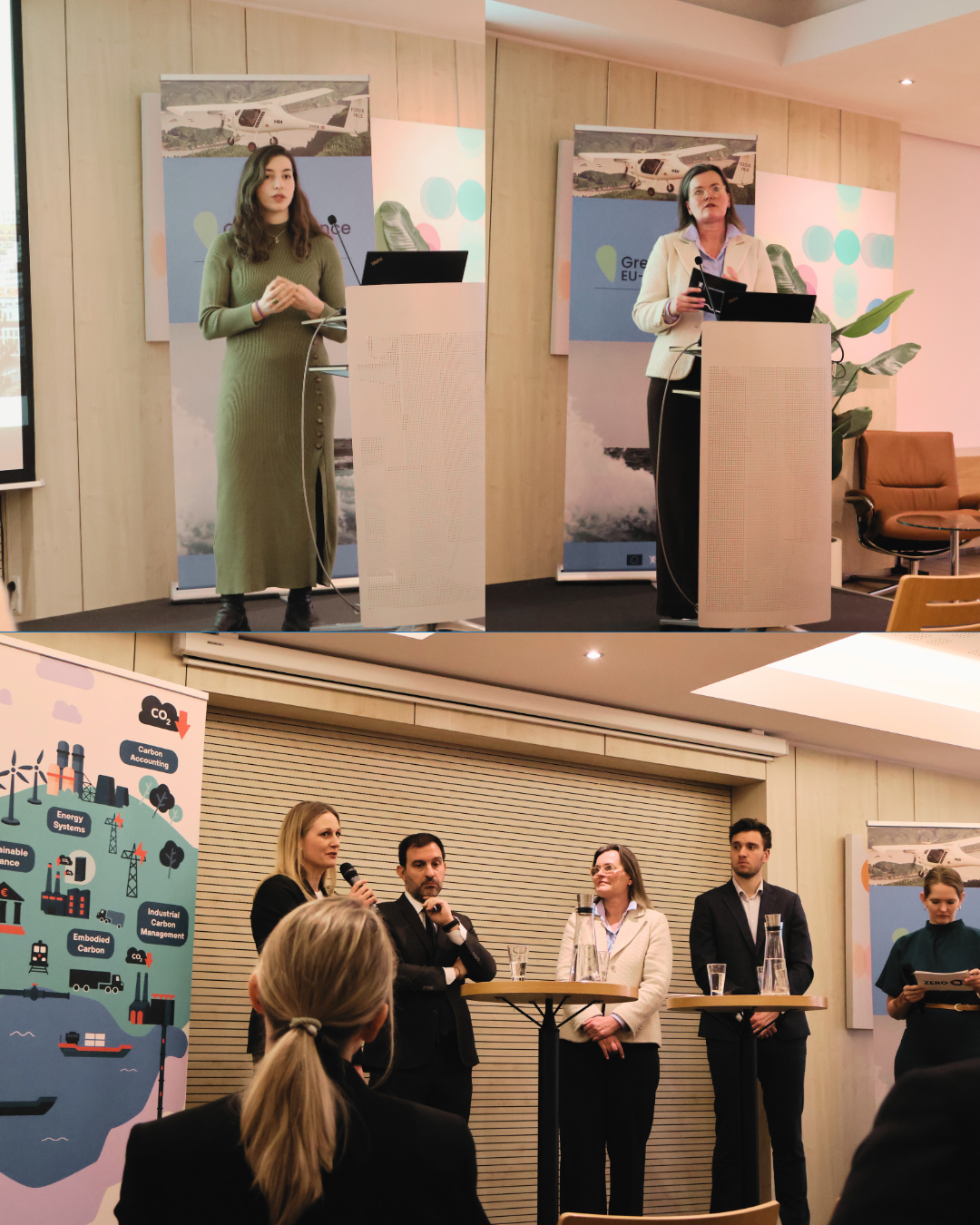
Joint letter – ICC reform and expansion risks diverting ETS Revenues from real climate action
In light of the European Commission’s ongoing considerations to amend the ETS State Aid Guidelines, revising the rules for Indirec...
News

Publish date: July 9, 2024
News
From July 1st, 2024, to December 31st, 2024, Hungary is holding the Presidency of the Council of the European Union (EU), following Belgium’s tenure. The priorities of the Hungarian Presidency include security, economic growth, strengthening of defence policy, alongside a handful of sustainability topics. However, the level of focus on climate issues is far from enough.
Amidst a high amount of controversy and backlash stemming from Hungarian Prime Minister Victor Orbán’s anti-EU and undemocratic views, Hungary started its six-month rotating Presidency of the Council of the EU, under the slogan “Make Europe Great Again”. The Presidency claims in its published priorities to attach great importance to the fight against climate change. Yet, the overall goals remain vague, and concrete points of action are hard to find in the country’s priorities for the presidency.
Throughout the document, the new Presidency highlights the importance of fairness in greening the economy and competitiveness, particularly for European farmers, referring to a “farmer-oriented EU agricultural policy”. However, it fails to mention that decarbonisation plays an essential role in staying competitive in the context of the changing climate.
Bellona believes that revenues from carbon pricing instruments need to be fully allocated towards climate action and that climate action needs to be credible and effective – not all the solutions to reach industrial decarbonisation are the same. It is important to keep in mind that revenues spent towards industrial decarbonisation need to follow set criteria such as climate impact, system effects, timing, scalability and the “Do No Significant Harm” principle. This is especially important in the global context, where countries in the last COP pledged to transition “away from fossil fuels in energy systems, in a just, orderly equitable manner, accelerating action in this critical decade, so as to achieve net zero by 2050.”
The Presidency’s programme highlights the need for action in the mitigation of emissions, adaptation, and climate financing on the path towards climate neutrality, yet the concrete actions remain unclear. In Bellona’s view, Hungary should pay attention to mobilising additional public capital towards the development of renewable energy systems (RES) and climate infrastructure, and shift current public capital from fossil-based activities towards low-carbon initiatives.
Bellona welcomes the mentions of energy markets, energy-intensive industries, and the need for affordable electricity system, while emphasising grid infrastructure in the Presidency’s priorities. Special attention is given to the development of robust and flexible energy infrastructure, implementation of the energy policy objectives in the National Energy and Climate Plans of the Member States (MS) and the “Fit for 55” package, energy security, renewable energy, and energy efficiency. It is now up to Hungary to make sure that, in addition to keeping the conversation in the right direction, they also deliver credible actions when it comes to energy.
As for climate policy, Hungary states that its goal is to contribute to maintaining the EU’s leading role in global climate policy by submitting the EU’s Nationally Determined Contributions (NDCs) for 2035. Interestingly, Hungary specifically highlights the need to strengthen the level of global ambition, without highlighting the need to set ambitious intermediate targets at the EU-level for 2040.
The new Presidency wants to adopt the COP29 Council conclusions and encourages climate action by third countries. However, as Bellona stated in its reaction to the COP28 agreement, while the results achieved represent an improvement, they are not sufficient and further action is needed. Hungary as Council President needs to make sure that the EU keeps very high ambition especially in the NDCs, which are due to be updated by COP30, next year. Hence, it is important that COP29 gives a strong signal on the importance of keeping up with climate goals and definite implementation.
Hungary also wants to contribute to the process of defining an ambitious and achievable, intermediate 2040 climate goal that guarantees that no citizen or Member State is left behind while ensuring the competitiveness and the security of energy supply of the EU throughout the green and just transition. Bellona strongly advises splitting the 2040 target into emission reductions, restoration of the land sink, and permanent carbon removals.
The Presidency’s list of priorities include the implementation of the objectives defined in the European Green Deal and the “Fit for 55” package, promoting the transition to a green and climate-neutral, circular economy, addressing the triple challenge of reducing pollution, mitigating climate change, and preserving biodiversity, playing a role in defining the European environmental and climate policy objectives for the next legislative cycle. However, it remains unclear how exactly the Presidency plans to act on these priorities and bring them to life.
The priorities of the Hungarian Presidency lack concrete action points on how the implementation of their goals will realistically look, making the promises and set priorities seem vague and uncredible.
Moreover, although there are no open policy files on industrial decarbonisation, requiring immediate action throughout the duration of Hungary’s Council Presidency, it should remain a top priority. It is essential to keep it high on the agenda to ensure European industries stay competitive in the broader efforts to decarbonise the European economy. With ETS free allowances starting to phase out in 2026, economic pressure will increase on industries to either reduce their emissions or cease operations. Recognising the crucial role that hard-to-abate industries, particularly cement and steel, play in the energy transition – by providing construction materials for renewable energy infrastructures and bolstering regional economies – industrial decarbonisation must remain a priority.
As mentioned in Bellona’s Roadmap for 2024-2029, a key strategy to help industries decarbonise and stay competitive is through the creation of lead markets for low-carbon products. EU support is crucial to create markets that would generate more demand and incentives for sustainable products, and thereby reduce the green premium often associated with the low-carbon products. The Presidency should achieve this by leveraging the purchasing power of public authorities via green public procurement at the EU level, and by establishing enabling frameworks for the rest of levels of governance (local, regional and national).
Climate action is an essential and evident path forward to achieve the EU’s climate goals, while staying competitive on the global stage. As the President of the Council, Bellona calls on Hungary to take the lead on implementing stronger and ambitious climate policies.

In light of the European Commission’s ongoing considerations to amend the ETS State Aid Guidelines, revising the rules for Indirec...

On 24 February 2025, Bellona Europa co-hosted a breakfast seminar at Norway House in Brussels alongside ZERO and the Mission of Norway to the EU, bringing together policymakers, manufacturers, and procurement practitioners around a single conviction: European cities hold a decisive and largely untapped lever for decarbonising construction. With the revision of the EU Public Procurement Directives on the horizon, the moment to use it is now.

Opening remarks and future of EU CRCF Market Christian Holzleitner, Head of Unit for Land Economy and Carbon Removals&nb...

Together with six NGOs and five industry partners, Bellona Europa signed a joint letter on the RFNBO Delegated Act, reiterating that now is not the t...

“The Commission shall monitor the situation at Union level with a view to monitoring the impact of the CBAM on the Union i...
Get our latest news